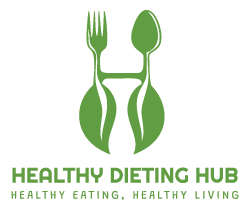
Generally, there are many ways to recognize when a person is allergic to certain foods, however, we constantly ignore the signs since we do not think they are really allergy symptoms, especially with foods such as gluten, which lately has been much more in demand than before. It is very common for people to talk about gluten allergy when they really suffer from intolerance or vice versa, which is why specialists always mention the importance of recognizing that an allergy is NOT the same as an intolerance to gluten or that celiac disease is not the same. the same as sensitivity to gluten, because despite the fact that in many points the three things are very similar, they have very significant differences.
For this reason, in this article Doctor anytime nutritionist Stephanie Hernández Garza is going to tell us about the differences between the aforementioned and how we can really realize that we have some sensitivity, allergy or intolerance to gluten. Find out right now if you are celiac!
Differences between allergy, intolerance, sensitivity to gluten, and celiac disease
Gluten allergy symptoms
A gluten allergy is really very rare, however, when it occurs it is important to distinguish it. Generally, when you have an allergy, the person’s immune system begins to produce antibodies against the substance that it considers harmful to your health, preventing gluten from reaching the intestine. Now, the symptoms that are shown when you have an allergy include:
– Chronic diarrhea or constipation.
– Weight loss despite eating well.
– Gas and cramps.
– Bloating or abdominal swelling.
– Abdominal pain.
– Pale and foul-smelling stools.
– Hives.
– Edema or difficulty breathing.
– Itching, swelling and irritation around the mouth.
– Nasal congestion.
– Itchy eyes.
– Nausea or vomiting.
– Itchy skin rash.
If you notice any of these symptoms, it is likely that you have an allergy to gluten, so you should stop consuming it or consult an allergist.
Signs that you have celiac disease
Unlike the symptoms and signs of allergies, celiac disease, which is the most common, is usually due to a genetic factor. When a person with this disease eats gluten, it triggers the immune system to attack the body itself, which generates an injury to the intestinal villi that can often lead to serious diseases such as cancer. The symptoms that celiac disease shows are:
– Swelling.
– Diarrhea.
– Weight loss.
– Fatigue .
– Constipation .
– Abdominal pain .
However, many people have shown symptoms that are not related to the digestive system, for example:
– Ulcers in the mouth.
– Headaches.
– Anemia.
– Osteoporosis or osteomalacia (bone softening).
– Joint pain .
– Nervous system injury presenting with tingling in the feet and hands, possible balance problems and cognitive impairment.
– Skin rash with itching and blisters.
– Hyposplenism (decreased function of the spleen).
And what is gluten sensitivity? Signals
Now, gluten sensitivity is a newly diagnosed disease closely related to celiac disease. When a patient is sensitive to gluten, they cannot be classified as allergic or intolerant, but the protein can make them sick. However, the symptoms are very similar to those of celiac disease and allergies, so it is very important to be very precise with the diagnosis to know how to treat them. The symptoms that are shown when you have gluten sensitivity are:
– Pain or numbness in the extremities.
– Eczema or skin rashes.
– Abdominal pain.
– Confusion, fatigue and headache.
– Abdominal swelling.
– Frequent diarrhea.
Gluten intolerance and its symptoms
Finally, gluten intolerance also shares symptoms with everything we have mentioned above. Due to this, it is very important to consult a specialist and carry out the necessary studies to recognize which of all the aforementioned conditions you have and to be able to treat them correctly from the root.
So… Am I celiac? How to spot it
How to know if you are a celiac person? Watch for these signs:
You have chronic gastrointestinal problems. This includes severe or recurring diarrhea, weight loss, bloating, or bloating.
You have anemia. You may be deficient in iron , but also in folic acid or vitamin B12. Celiac disease damages certain parts of the intestine where these vitamins are absorbed, so deficiency may be a warning that you need to be treated.
There is a family history. You may not have any symptoms, but if you have relatives with diagnosed celiac disease, then you will have to go to your medical center and have a test done to clear up any doubts.
You don’t think clearly. You may forget things that you had to do, such as having memory lapses, but if you have this type of brain fog often and cannot attribute it to other causes such as stress, it could also be a sign that you are a celiac person.
You are tired all the time. If you feel weak or very tired all the time, you also need to think that you may be celiac. If you are rested but still feel weak, you should go to your doctor to explain what is happening to you and to find a solution together.
Diagnosis and treatment for celiac disease
First it is important to detect the symptoms mentioned, once the signs are noticed we can be sure that we suffer from any of the conditions mentioned.
Once your doctor rules out the more serious condition, which in this case is celiac disease, it can still be difficult to diagnose at least gluten intolerance.
However, taking a blood sample that is tested for the presence of antibodies could show the onset of celiac disease or gluten allergy, but in some cases other tests are necessary, for example:
Skin tests: With the help of small needles, allergen extracts, which include food , are placed on the surface of the skin, after 15 minutes doctors look for signs of allergic reactions.
Food challenge test: Foods suspected of causing the allergy or illness should be eaten while doctors monitor you for these signs.
Elimination diet: The doctor will recommend that you eliminate some foods from your diet, mainly those that are common allergens. As directed by your doctor, you will gradually reintroduce foods to your diet, this way you will see when your symptoms return.
Food diary: Although it is usually one of the things we do not do, having a food diary is a good option to record the foods that are consumed and the symptoms that are experienced afterwards.
Once the problem is detected, and if indicated by the doctor, a gluten-free diet will be started. Foods that contain gluten are quite a few; some of them are wheat, rye, and barley , so avoid most breads, croutons, pasta, grits, foods with thickeners, and even processed meats and vegetarian meat substitutes . Oats are safe, but the vast majority are “contaminated” by having contact with gluten in their production.
Gluten-free foods will say so on their label, but watch out! Gluten-free is not the same as wheat-free.
The good news is that there are many foods that can be consumed, such as quinoa, potatoes, potato flour, rice and wild rice, amaranth, beans, corn, gluten-free bread, nut flours, tapioca and sorghum.
Remember that it is extremely important that a multidisciplinary team guide you about gluten allergy and celiac disease.


